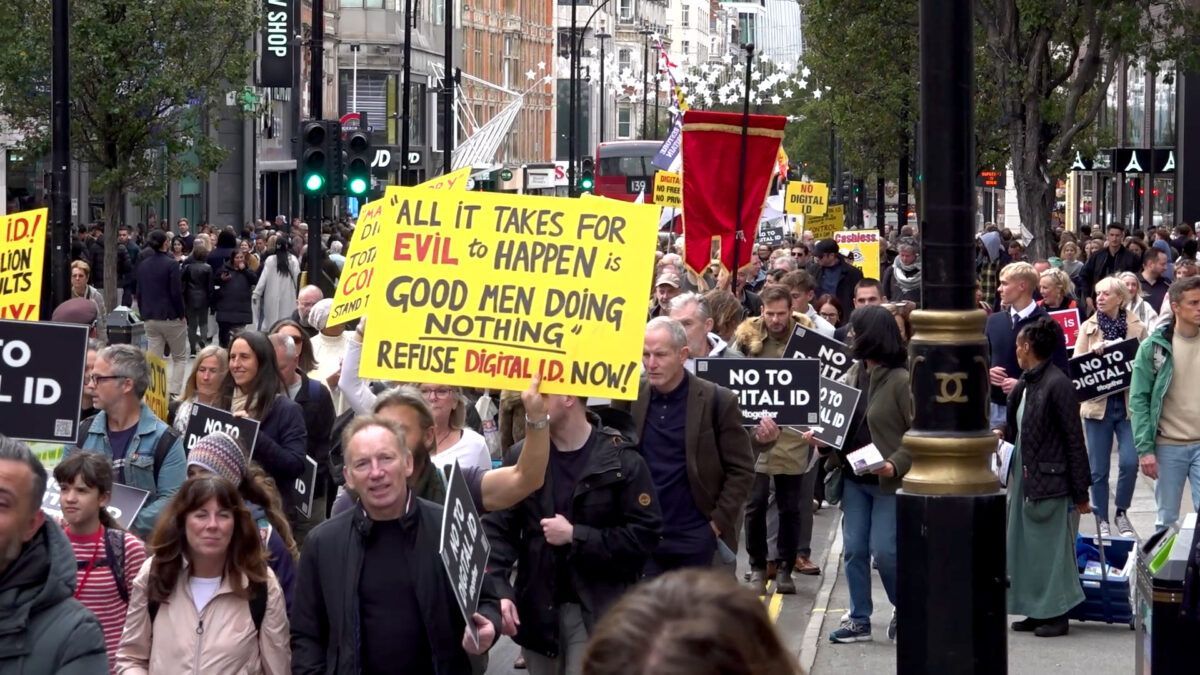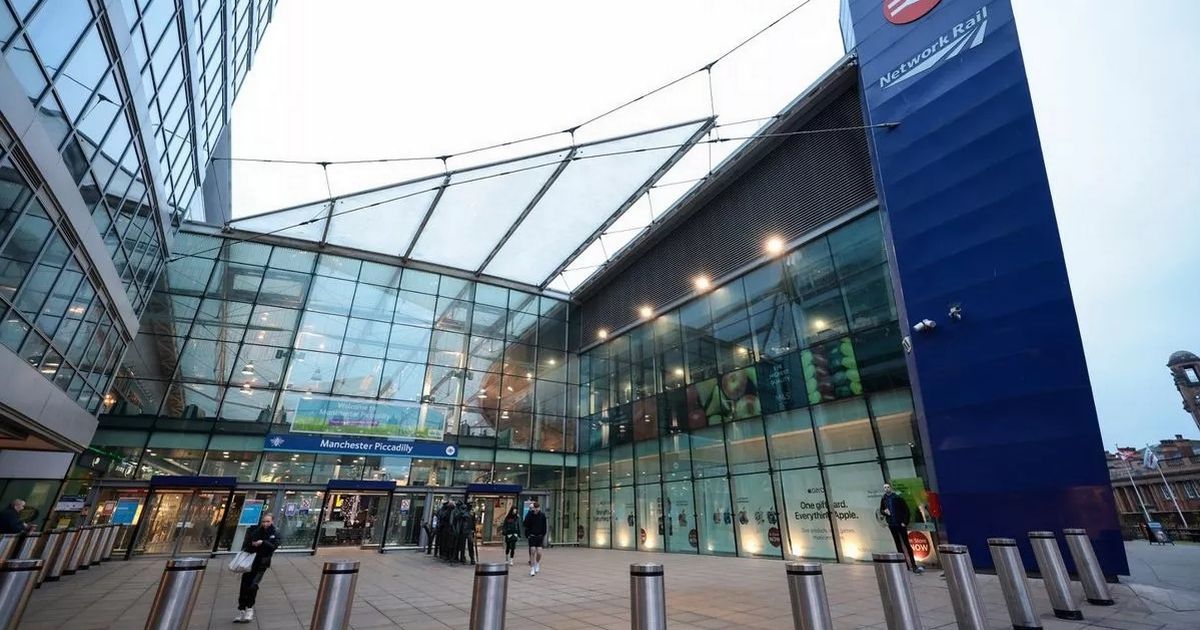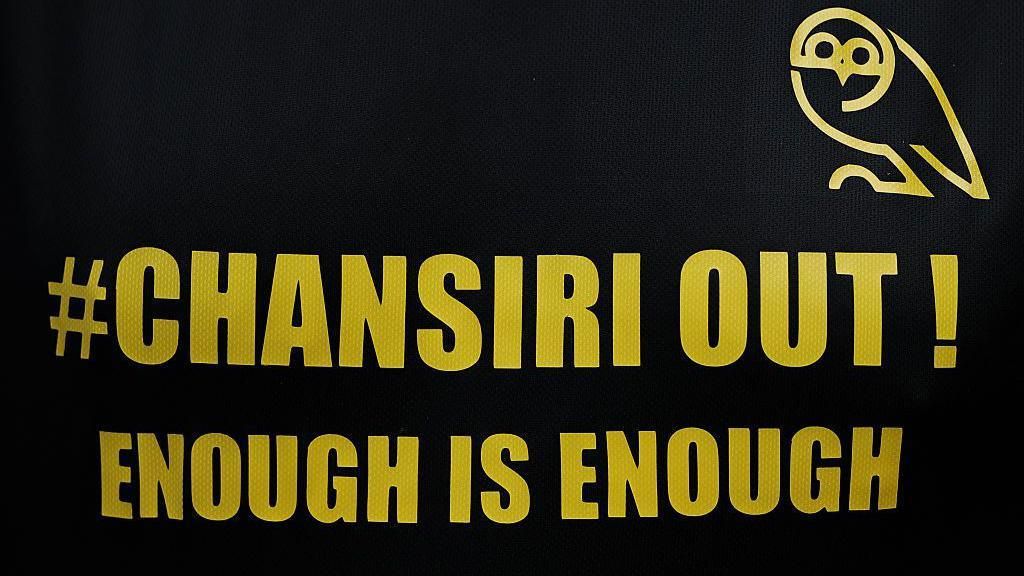Thousands Protest in London Against Government’s 2029 Digital ID Plans
Thousands Protest in London Against Government’s 2029 Digital ID Plans

Thousands of protesters have marched through central London in opposition to government plans to introduce mandatory digital ID cards by 2029.
The large demonstration, organised by campaign group Mass Non-Compliance, brought parts of the capital to a standstill on Saturday as crowds chanted, carried banners, and voiced concerns over what they described as an attack on privacy and freedom.
Under strict police conditions, protesters were ordered to remain on the left-hand side of the road and follow a designated route through the city, which concluded outside Downing Street in Whitehall.
Government’s 2029 Digital ID Plan
The Prime Minister announced in September that the government will roll out a digital identification system within four years. The scheme would make it mandatory for everyone working in the UK to hold a digital ID, forming part of wider efforts to tackle illegal migration and prevent identity fraud.
Officials argue that the move would modernise identification processes and help secure public services. However, critics warn it could hand the state unprecedented access to citizens’ personal data.
“A Threat to Freedom”
Among those leading Saturday’s protest was former Conservative MP Andrew Bridgen, who was expelled from the party in 2023 after controversial comments comparing COVID-19 vaccines to the Holocaust. He was seen walking at the front of the march alongside organisers holding signs reading “No to digital slavery” and “Protect our freedom.”
One demonstrator carried an effigy of Labour leader Sir Keir Starmer, while others waved Union Jacks and banners warning of a “digital dystopia.”
On its website, Mass Non-Compliance promoted the protest with a stark message:
“If you accept digital ID now, it may be the last real choice you ever make.”
Political Backlash Grows
Plans for a national digital ID have already faced heavy political resistance.
Former Conservative minister Sir David Davis, who led opposition to ID cards under Tony Blair’s government in the 2000s, condemned the proposal, calling it “profoundly dangerous to the privacy and freedoms of the British people.”
Tory leader Kemi Badenoch dismissed the policy as a “gimmick that will do nothing to stop the boats,” while Reform UK leader Nigel Farage said he was “firmly opposed” to any form of mandatory digital identification.
The Liberal Democrats have also voiced strong objections, stating they would not support a system that forces people to “turn over private data just to go about their daily lives.”
International Context
Digital ID systems are already in use across parts of Europe, Asia and the Middle East, often tied to public service access, tax systems, or travel verification.
Advocates say such systems improve efficiency and prevent fraud, but privacy campaigners argue that they pave the way for mass surveillance and data misuse.
The UK last attempted to introduce identity cards under Tony Blair’s Labour government in the mid-2000s, but the plan was abandoned following widespread public opposition and concerns about data security.
Police Response
The Metropolitan Police confirmed that Saturday’s demonstration was conducted largely peacefully, though officers maintained a visible presence along the route to ensure compliance with public order conditions.
A spokesperson said:
“We are aware of strong views on this issue, and our role is to ensure the safety of all participants and minimise disruption to the wider public.”
The Debate Continues
With the government pushing ahead, the debate over digital identity in the UK looks set to intensify in the months ahead.
While ministers argue it is essential for tackling illegal work and modernising the economy, opponents see it as a step toward state surveillance and erosion of civil liberties.
As the country edges closer to the planned 2029 rollout, the fight over digital freedom vs. national security is only just beginning.




